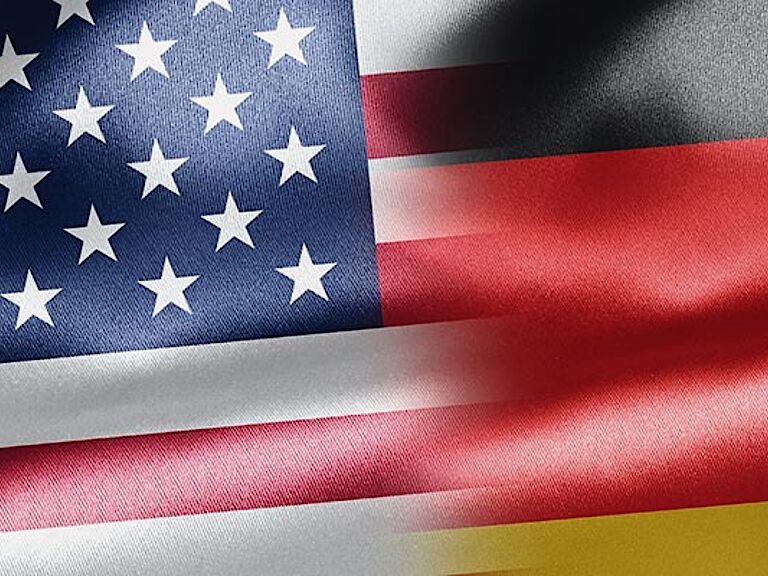GAAS-Conference 2017: One Nation Under God? Values and Faith in the Age of Polarization
Project no.:
17-085
Date:
Friday, 10 - Saturday, 11 November 2017
Venue:
PfalzAkademie Lambrecht, Franz-Hartmann-Straße 9,
67466 Lambrecht (Pfalz)
Partner:
Politikwissenschaft der Universität Jena
German Association for American Studies
Target group:
Political scientists, historians, sociologists as well as a larger interested audience
Conference fee:
Professionals 85 Euro (single room) / 70 Euro (double room) / 50 Euro (without overnight accomodation)
Students 45 Euro (double room)
Program
The program flyer can be found here or downloaded here.
Registration (until November 3rd, 2017):
Please use our form to register for the event. If for any reason you cannot use this form, please contact us via email.
Description:
Donald Trump’s presidency seems to be based on the simple idea of politics as another “Art of the Deal”. His erratic campaigning and turbulent first months in office do not offer much insight into his underlying political values. Still, his victory in the 2016 presidential election was, at least in part, made possible with the backing of the Christian coalition, whose policy preferences are a strong derivation of faith-based (Christian) values.
In the current age of intense polarization, both major parties rally support by aligning policy proposals with specific ideological backgrounds. However, ideological battles are not a new phenomenon in American politics. The United States was founded during a period of dividing values. Even in times of unrest and turmoil, republican values, the ideal of virtuous politics, and protestant faith vanquished most political differences. The “American Dream” seemed to roll it all into one catchy phrase. But today, it seems as if no all-encompassing normative idea exists anymore.
The promise of “one United States”, as forcefully propagated by President Barack Obama at the 2004 Democratic National Convention, has been challenged by the fortification of numerous distinct “Americas” within the US. In large parts, they are shaped by questions of values and faith rather than class or income. Among other issues, the long and ongoing battles over social issues, America’s role in the world and immigration are evidence of this division. Looking at election maps, the red and blue spaces offer proof of this breakup. The coasts and the heartland, urban and rural America, the North and the South, they all stand for specific value sets and even basic symbols of the American civil religion, like the constitution itself, are now part of ideological contests.
These and other concerns will be at the center of the 2017 Annual Meeting of the Political Science Section of the German Association for American Studies.
Programm
Friday, November 10, 2017
1.00pm—1.30pm
Introduction
1.30pm—3 .30pm
Panel 1: Values and Politics – Historical Roots, Ideological Development and Links to Today’s Politics
Chair: David Sirakov (Kaiserslautern)
Katrin Friske (Jena): Great Awakening, Morality, and current American Politics
Jeff Montrose (Eichstätt-Ingolstadt): The Jacksonian Tradition. Donald Trump and American Populism
4pm – 5.30pm
Panel 2: Values and the American Society
Chair: Jörg Hebenstreit (Jena)
Christian Lammert (Berlin): The End of the American Dream? Inequality and Social Mobility in the U.S.
Michael Oswald (Passau): The Republican Vote: Social Values, Economic Gain – Both or Neither?
7.30pm – 9pm:
An Evening with Kurt Shell
Introduction: Michael Dreyer (Jena)
Saturday, November 11, 2017
9am – 11.30am
Panel 3: Values and Policies I: Foreign Policy and Current Research in American Studies (Political Science)
Chair: Matthias Enders (Jena)
Thomas Stelzl (Passau): Culture Clashes in 21st Century German-American Foreign Policy – Bush, Obama and Beyond
Florian Böller (Heidelberg) / Marcus Müller (Kaiserslautern): In Drones We Trust: Democratic Values and the War on Terror from Obama to Trump
11.30pm – 12.00pm
Business Meeting
1pm-3pm
Panel 4: Values and Policies II: Domestic Policies
Chair: Michael Dreyer (Jena)
Jörg Hebenstreit (Jena): Values, Money, and Campaigns
Matthias Enders (Jena): Is Anti-Intellectualism on the Rise Again? American Attitudes Towards Higher Education








